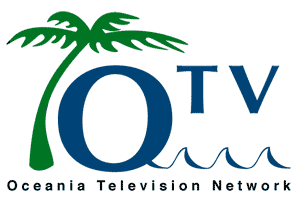As we enter the 2012 election season, prescription questions have been asked to me about on-air personalities who run for political office, cost and what a station needs to do under the broadcasting rules to keep things fair. For instance, if a political candidate is a radio and TV talk show host, how do others get the same airtime?
It is actually quite straightforward. Palau law lays out two very clear requirements: (1) all political candidates should be given the same access to a station (equal airtime) and (2) 45 days before the primary and 60 days before the general election all airtime rates must be equal. This means that if a candidate is not charged for airtime, then no other candidate can be. This is why radio and talk show hosts in the U.S. resign from being on air once they declare because if they stayed on air, the station would loose any potential income from the other candidates.
If the radio or TV personality who is running for political office remains on the air, any opposing candidate can come to the station and demand free equal airtime and every opponent would be entitled to the same amount of air time as the station employee/owner at no charge. Also keep in mind that the radio or TV personality does not need to be talking about the campaign or election, just being on air is enough to trigger the requirement that one give free equal airtime to his opponents. And to be clear equal airtime does not mean being a guest on the personalities or owners show. It means you get the air time to use however you like, you can have your own show with your own host or provide a pre-produced piece and it has to be played.
This applies for price as well. Within the dates stated above all candidates must be given the lowest unit of charge. Bottom line, all pay the same, if one candidate gets free airtime, all candidates do. This is why we have published rates with no discounts, to keep things equal.
Democracy in Palau is an evolving concept. With each election, constitutional convention and court ruling, the essence of what is right and wrong and how this country operates into the future is being defined. The U.S. has realized that the media is an important and powerful part of the political process and has regulated TV and Radio to allow candidates equal airtime so voters can have fair and balanced information to allow them to make a well-informed choice.
With election time once again growing near, Palau will define its future by how the election laws are interpreted and enforced. For those of you who like to read the law, here you go:
PNCA § 138. Equal time requirements.
(a) If any licensee permits a legally qualified candidate for public office to use an AM or FM radio station or television station, the licensee shall afford equal opportunity to all other legally qualified candidates for that office in the use of such station; provided, that the licensee shall have no power of censorship over the material broadcast under the provisions of this section. A licensee is not required under this subsection to allow the use of its station by any candidate for public office. A statement by a legally qualified candidate for public office made as part of a genuine (1) news broadcast, (2) news interview, (3) news documentary (if the appearance of the candidate is incidental to the presentation of the subject or subjects covered by the news documentary), or (4) live report of news events (including but not limited to political conventions and activities incidental thereof thereto), shall not be deemed to be use of a station within the meaning of this subsection. No provision of this subsection relieves a news service, in connection with the presentation of news broadcasts, news interviews, news documentaries, and live coverage of news events, from its obligation under this chapter to operate in the public interest and to afford reasonable opportunity for the discussion of conflicting views on issues of importance to the public.
(b) Charges by a licensee for the use of an AM or FM radio station or television station by a legally qualified candidate for public office in connection with his or her candidacy for such office shall not exceed:
PNCA § 138 COMMUNICATIONS
(1) during the forty-five (45) days preceding the date of a primary or primary runoff election or during the sixty (60) days preceding the date of a general or special election in which such person is a candidate, the lowest unit charge of the station for the same class and amount of time for the same period; and
(2) at any other time, the charges made for comparable use of such station by other users thereof.
If any person makes a statement on an AM or FM radio station or a television station about any other person, the licensee of that station shall afford the person referred to on air an opportunity to rebut that statement on air.
by
Jeffrey T. Barabe
1 thought on “There are rules. Election OpEd”
Comments are closed.

Jeff, you may be an expat but after ten years in Palau you have earned enough respect to be taken seriously. I wish you could run for the senate. Thanks for bringing this issue to the forefront.